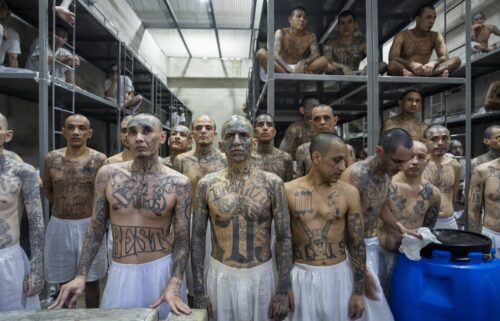Virginia AG says state universities cannot mandate Covid-19 vaccines without lawmakers’ approval
By Veronica Stracqualursi, CNN
Virginia’s newly sworn-in Attorney General Jason Miyares says that state universities cannot require the Covid-19 vaccine for students to attend in-person or enroll, unless the commonwealth’s legislature includes it among required immunizations for colleges.
The legal opinion, Miyares’ first since taking office nearly two weeks ago, supercedes the one issued in April 2021 by Virginia’s prior Democratic attorney general, Mark Herring, that allowed state universities to require Covid-19 vaccines for attendance during the pandemic.
The legal guidance, which is not equivalent to law, has no direct consequences if it isn’t followed, the attorney general’s office said Friday. But “if an individual decided to sue a university for not following the attorney general’s guidance, they could use the Attorney General’s opinion in court.”
Miyares’ legal opinion adds to GOP Gov. Glenn Youngkin’s efforts to roll back the Covid-19 restrictions and precautions put in place by his predecessor, Democratic Gov. Ralph Northam.
In his guidance, requested by Youngkin, Miyares writes that Virginia’s higher education public institutions fall under the control of the General Assembly, which has enacted statutes governing student health and outlined certain immunizations that students need to enroll.
Miyares acknowledged that Virginia state lawmakers may choose to enact a statute requiring the Covid-19 vaccine for in-person school attendance, but added, “As of this writing, it has not done so.”
State lawmakers haven’t yet amended Virginia law to include the Covid-19 vaccine among the specific immunizations listed, and “boards of visitors may not exercise an implied power to require a certain vaccine when a specific statute governing vaccination excludes it,” he wrote.
Miyares also said that although the General Assembly authorized state colleges and universities to help the Department of Health and other local health departments in administering the Covid-19 vaccine, “the legislation did not grant such institutions power to impose vaccine requirements.”
“Absent specific authority conferred by the General Assembly, public institutions of higher education in Virginia may not require vaccination against COVID-19 as a general condition of students’ enrollment or in-person attendance,” he concluded.
“For many universities, this is perhaps disappointing,” University of Virginia law professor Margaret Foster Riley told CNN, adding that Miyares’ interpretation “will guide the actions of the universities” in term of vaccine mandate requirements, but the “question is whether someone will challenge it.”
Corey Byers, a spokesperson for Virginia Commonwealth University, which requires students to be fully vaccinated and boosted unless they provide an exemption, told CNN on Friday that it is “reviewing the opinion to determine how it affects VCU students, particularly those students in hospital and clinical settings.”
On his first day in office, Youngkin signed an executive directive rescinding the vaccine requirements for state employees, including employees of public high education institutions.
In light of the governor’s directive, some of Virginia’s biggest public colleges — the University of Virginia, George Mason University and Virginia Tech — changed requirements and instead “strongly” encouraged their employees to get vaccinated and boosted.
He also signed an executive order making masks voluntary for children in the state’s public schools, which he is currently being sued over.
The-CNN-Wire
™ & © 2022 Cable News Network, Inc., a WarnerMedia Company. All rights reserved.
CNN’s Virginia Langmaid contributed to this report.


